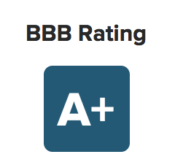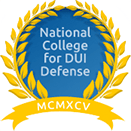
Title IX is a federal law that prohibits discrimination based on sex in programs and activities at elementary and secondary schools, colleges, and universities that receive federal funding. In addition to cases of sexual discrimination in programs, Title IX is often applied to allegations of sexual harassment and sexual assault.
Because schools that have Title IX violations can lose millions of dollars in federal funding, Title IX investigations are often quick to condemn and punish the accused, with suspension or expulsion of students and the firing of faculty and staff. It is common for sex crime charges to be filed alongside allegations that stem from a Title IX investigation.
A Title IX investigation can ruin an educator’s career or stop a student from obtaining a degree and pursuing a career. In fact, a school may withhold or revoke a degree earned by a student who has been found responsible for a Title IX violation.
It is imperative to obtain experienced legal counsel if you face a Title IX investigation. In New Jersey, the Title IX defense attorneys at the Law Offices of Jonathan F. Marshall can provide the aggressive legal representation required to withstand a sexual misconduct investigation or refute charges under Title IX.
Our team is made up of former New Jersey prosecutors and public defenders who have spent decades investigating and litigating sex crimes and federal charges in courts across New Jersey. Our attorneys have the experience and insight into defense strategies needed to protect your rights and your future if you face charges under Title IX.
Throughout the State of New Jersey, individuals and families are glad they turned to the Law Offices of Jonathan F. Marshall for legal representation because:
- We have built one of the largest and most seasoned criminal defense law firms in the state, with nine highly skilled lawyers, an experienced legal staff, and extensive resources. We are capable of dedicating the time, energy, and level of detailed planning needed to prepare a strong defense to a Title IX investigation.
- The lawyers of our firm bring knowledge and skills gained through decades of courtroom experience to your case. We have earned our reputation for crafting strategic criminal defenses that keep clients out of court and for presenting strong and persuasive cases to judges and juries when trials are unavoidable.
- The breadth of our work has allowed the firm to develop a professional reputation that enables us to be heard when we seek to negotiate reduced charges and other agreements for our clients.
Contact the Law Offices of Jonathan F. Marshall today to protect your rights and respond to a Tite IX investigation or defend you against charges stemming from the investigation. Phone (856) 565-3635 or fill out our online form now to set up a free consultation to review the charges and discuss your legal options.
What Types of Conduct Are Prohibited by Title IX?
Title IX of the Education Amendments of 1972 (Title IX) states that no person shall, on the basis of sex, be excluded from participation in, be denied the benefits of, or be subjected to discrimination under any academic, research, occupational training, or other education program or activity operated by a recipient which receives federal financial assistance.
In short, Title IX prohibits sexual discrimination at schools that receive federal money, which means almost all public and many private schools. Sexual discrimination includes discrimination based on pregnancy, sexual orientation, and gender identity. It also includes sexual harassment, which under Title IX includes:
- Acts of sexual violence, including sexual assault, rape, dating violence, domestic violence, and stalking.
- Unwelcome sexual advances, requests for sexual favors, name-calling , and other verbal, nonverbal, or physical conduct of a sexual nature.
Under a U.S. Supreme Court decision known as Davis v. Monroe County Bd. of Ed., 526 U.S. 629 (1999), sexual harassment under Title IX is unwelcome conduct based on gender determined to be so severe, pervasive, and objectively offensive that it effectively denies a person equal access to the recipient’s education program or activity.
A denial of equal access doesn’t require the offended individual to quit school. Signs of enduring unequal educational access may include skipping classes to avoid a harasser, a decline in grade point average, or difficulty concentrating in class.
Violations of Title IX may be alleged against the school, an employee of the school such as a coach or trainer, another student, or a third party. Title IX also prohibits retaliating against a person for filing a complaint or speaking up about rights protected under Title IX.
What Is a Title IX Investigation?
Schools obligated to Title IX must designate at least one employee to serve as a Title IX coordinator. This individual is responsible for coordinating efforts to comply with Title IX, including responsibility for investigating any Title IX complaints against the school, students, or third parties.
A Title IX investigation is an administrative proceeding and not a criminal one. But criminal charges may arise out of an investigation. The objective of an investigation into a complaint of sexual discrimination or harassment in violation of Title IX should be to put a stop to the offensive activity alleged, prevent additional like or similar acts, and resolve the harmful effects of the alleged act(s).
As part of an investigation, the Title IX coordinator is required to:
- Notify all parties involved of the allegations and the investigation.
- Meet with each party to the complaint and witnesses to review their rights and explain the investigation process.
- Conduct interviews and collect evidence.
- Prepare written summary statements from interviews, which participants may review.
- Provide parties electronic access to all evidence collected that relates to the complaint and allow 10 days to review and respond.
- Prepare a draft report with a case timeline, written statements, and a summary of evidence related to the complaint. All parties are to have 10 days to review and respond to the draft report.
- Prepare the final report, including parties’ responses to the draft, and send it to both parties and decision-makers.
- Set a hearing date or ask whether the complaining party will consider an alternative resolution. An alternative resolution resolves a Title IX case without a formal hearing. The options vary from school to school. In some cases, an apology and completing a remedial class resolves the complaint.
If you are the target of a Title IX investigation, you will want to have an experienced lawyer represent you.
What Are the Rights of Accused Students in a Title IX Investigation?
How individual schools conduct Title IX investigations and hearings varies. Because Title IX is a federal law, schools must comply with general rights and procedural requirements.
If you are the target of a Title IX investigation, you should be allowed to have a Title IX attorney present at any meeting pertaining to the complaint against you and/or the investigation. You and your lawyer have the right to review the investigator’s evidence against you and to respond to it to make corrections, if necessary.
You should also receive a copy of the draft of the investigation report, which you may respond to, and the final report. You should have the opportunity to provide the Title IX coordinator with evidence and witness statements that favor you and to see that this information is in their final report.
While schools are legally obligated to complete Title IX investigations in a reasonably prompt timeframe, there is no set timeline for how long an investigation should take.
If the complaint is referred for a hearing, federal law requires the school to hold a hearing to determine the validity of the complaint. All parties should receive written notice of the hearing no less than 10 days prior to the hearing date.
Someone other than the school’s Title IX coordinator should preside at the hearing. Title IX hearings are not public. No one who is not connected to the case should be present.
You have the right to have an attorney represent you during a Title IX hearing.
You will be asked questions about the allegations against you. Your attorney will be allowed to question your accuser. They will not see the questions beforehand. Your attorney will have an opportunity to present evidence and witnesses in your defense.
Your accuser will not be required to attend an in-person hearing or submit to cross-examination. They may participate in the hearing via video conferencing. Their advisor and/or lawyer can appear and question you and any witnesses on their behalf.
What Are the Potential Consequences of a Title IX Investigation?
After a Title IX hearing, the accused person will be ruled responsible or not responsible. If you are found responsible, you may face such sanctions as:
- Suspension
- Expulsion
- Degree denial or revocation
- Loss or reduction of financial assistance or academic or athletic scholarship
- Loss of athletic eligibility
- Loss of other academic opportunities or positions, such as removal from ROTC leadership and/or forfeiture of a military commission.
It is also likely that your accuser will go to the police if they are alleging criminal conduct, which could lead to criminal charges and potentially a prison sentence if you are convicted.
Contact a New Jersey Title IX Investigation Lawyer
If you have been notified of a Title IX investigation targeting you in New Jersey, contact our experienced Title IX defense attorneys as soon as you can. Our team, which includes experienced sex crime defense attorneys, will work diligently to stop an invalid investigation from moving forward and seek to keep you from facing sanctions that can damage your academic or professional career. Contact our law offices now for a free consultation and explanation of your legal rights.











